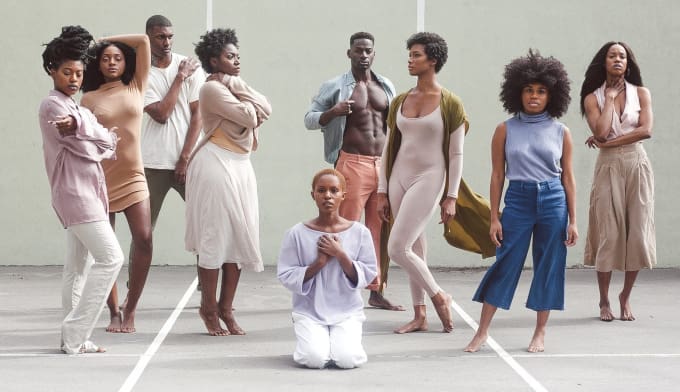My relationship media has been complicated to say the least. For the most part, me and media have a very intimate love affair which is completely one sided. Throughout most of my life, I defined myself in comparison to people that I saw in the media. While the internet and social networking sites have become a lot more inclusive now, and embrace black culture, as we all know, it has not always been this way. During elementary and middle school, my black identity was not one I was entirely comfortable with, compounded by the fact that everywhere I looked I saw white people, in my school, and most of all in the media I consumed. If there was a woman of color, she has her hair straightened, making me think that this is the only way a black woman can be accepted as a productive member of society. Not only did this cause me to change myself and dislike certain parts of my identity, but I felt very isolated. For most of my life, I have been the only black student in my classes, so coming to school and seeing no one who looked like me, then going online to see the same type of people that were with me everyday caused lots of confusion in terms of who I was and what I was supposed to act like. Black women who didn't have their hair straightened were portrayed as ghetto, ratchet, or as hoodrats, creating a definition of what a "good black woman" was that for so long I felt required to follow. Media has also created the ideal body, and labeled everyone who doesn't meet that definition as ugly or unattractive. This has caused some serious body issues for many young girls, myself included. Not only was I a black girl, but an overweight black girl, labeling myself in contrast to the things I could never be: white and skinny. Often times, the bodies being praised were unachievable, and existed in my mind before I understood what photoshop and other artificial imagery was. But fortunately, times have changed and so have I. Recently, there has been a major change in the way that media is used- with people using it to reclaim aspects of their identity that society labeled as wrong for so long. Now, I can easily find pictures of black queens or other minorities rocking their natural hair and no longer feeling strong pressure to conform to a white man’s world. The same thing applies with the body positivity movement- media has moves from being a negative thing that shames people who do not meet one ideal, but rather has become a more inclusive space where people are free to love and accept themselves. Yes, there are trolls and people who have nothing better than to be rude, but you win some, you lose some.
Merchants of Cool. If I am going to be entirely honest, even the title makes me cringe a bit. It seems torn between two generations, or like one generation desperately trying to fit into the mold of another. This title is the epitome of “I’m not like other moms, I’m a cool mom” which is not something anyone should be striving for. This desperation to “be one of the teens” be it to genuinely understand them or turn them into a conquerable market makes me rethink the way I consume and the sort of advertising I fall for. Yes, I can laugh at the kids in the movie for being so blindly dependent on the idea of autonomy that they don’t see the way they are being manipulated, but more often than not- I am that kid in the movie. As such a large market, teens have the power to make a major impact on a company’s sales. In theory, consumers should be in charge of the market-but companies have made sure to stay one step ahead so that teen life and the market are one and the same. One of...

Comments
Post a Comment